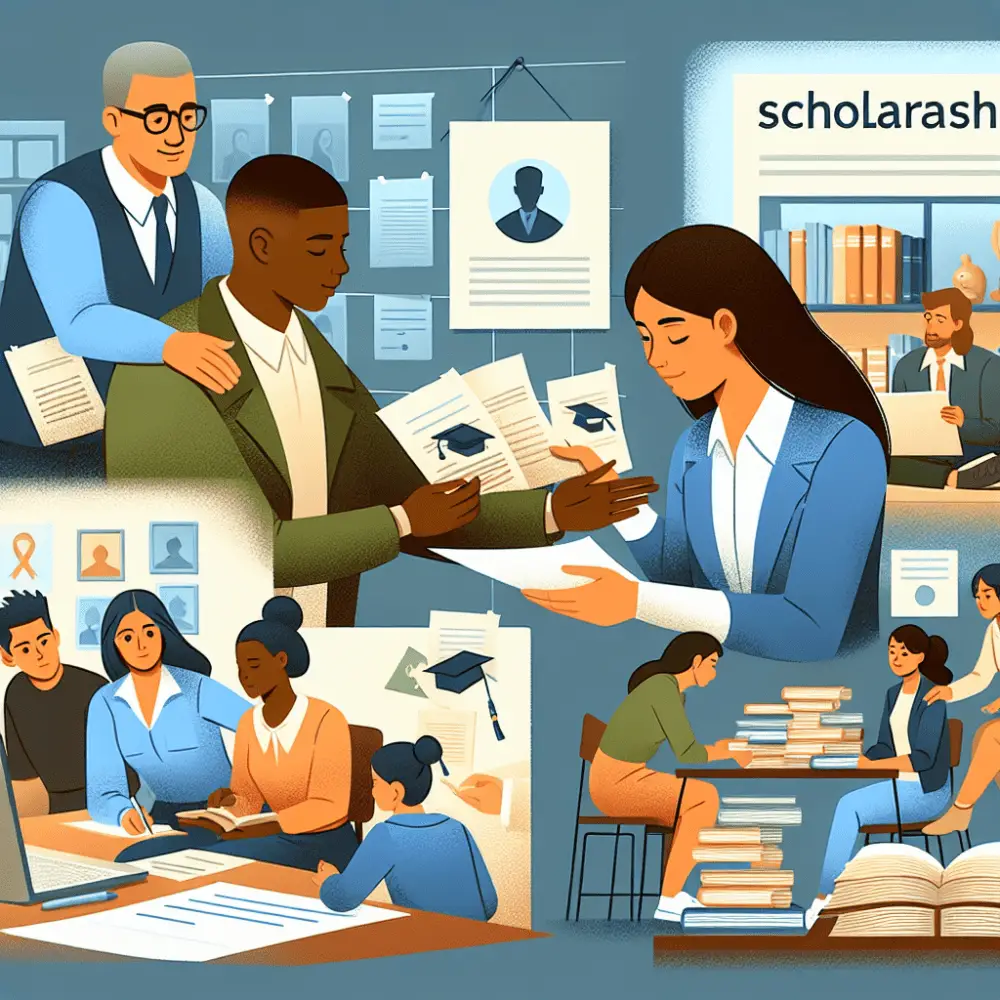
Applying for scholarships can be a daunting task for any student, but it is especially challenging for first-generation college students—those who are the first in their families to attend college. These students often lack access to the same guidance and resources as their peers. However, support networks can play a crucial role in helping these students navigate the scholarship application process and achieve their academic goals.
Understanding First-Generation Scholarship Applicants
First-generation scholarship applicants are students whose parents did not complete a four-year college degree. This unique status often places them in uncharted territory when trying to secure funding for higher education. Unlike peers who may have parents or relatives with college experience, first-generation applicants face additional hurdles such as a lack of familiarity with the application process, limited access to information, and financial constraints.
The Importance of Support Networks
Support networks are communities or groups that provide assistance, guidance, and encouragement. For first-generation scholarship applicants, these networks are essential in bridging the gap between aspiration and achievement. These networks can offer multiple layers of support, including emotional encouragement, practical advice, and resources necessary for successful scholarship applications.
Types of Support Networks
Family Support
Even though first-generation students’ families may not have college experience themselves, emotional support and encouragement from family members can be invaluable. Families can help by creating a supportive home environment where education is valued. They can also assist with time management by sharing household responsibilities or providing transportation to educational events.
School Counselors
School counselors play an essential role in guiding first-generation students through the scholarship application process. They can provide information on various scholarships available and help students understand eligibility requirements. Additionally, counselors often assist with application essays and offer workshops on financial aid literacy.
Teachers and Mentors
Teachers and mentors who take a special interest in first-generation students can make a significant difference. They often provide personalized advice on academic pathways that align with a student’s strengths and interests. Mentors who have gone through similar experiences can offer valuable insights into overcoming challenges specific to first-generation status.
Community Organizations
Many community organizations exist specifically to support first-generation college-bound students. These organizations may offer workshops on how to search for scholarships or provide one-on-one advising sessions to help with applications. Some even offer financial assistance programs aimed at reducing the overall cost of applying for colleges and scholarships.
Online Resources
The internet offers numerous resources that first-generation scholarship applicants can utilize without leaving home. Websites like Fastweb, the College Board’s Scholarship Search tool, and Scholarships.com allow students to find scholarships tailored to their needs quickly. Additionally, social media groups and forums dedicated to first-generation college students provide platforms where users share tips, resources, and moral support.
Building Effective Support Networks
Identifying Needs
The first step in building an effective support network is identifying what specific needs must be met. For example:
- Does the student need help with essay writing?
- Is there a requirement for financial literacy education?
- Are there gaps in understanding how to search for scholarships?
By pinpointing these needs early on, it’s easier to seek out appropriate resources.
Reaching Out
Once specific needs are identified, reaching out becomes essential:
- School Counselors: Schedule regular meetings.
- Community Organizations: Attend workshops or join programs specifically designed for first-generation students.
- Online Platforms: Join relevant groups or forums where tips and advice are shared freely.
Being proactive about reaching out ensures that no opportunity is missed due to a lack of awareness or hesitation.
Creating Accountability Systems
Accountability systems ensure that progress is tracked consistently:
- Checklists: Create checklists of required documents or deadlines.
- Regular Meetings: Set up regular check-ins with mentors or school counselors.
Such systems help keep track of tasks completed versus those still pending, which minimizes stress closer to deadlines.
Peer Support Groups
Sometimes the most meaningful advice comes from peers going through similar experiences:
- Study Groups: Form study groups focused not just on academics but also on exchanging information about scholarships.
These groups become informal yet powerful networks where members motivate each other while sharing practical advice about managing both academic workload and application processes.
Overcoming Common Challenges
Despite having strong support networks, some common challenges still persist:
Financial Constraints
Navigating financial constraints remains one of the biggest hurdles:
- Fee Waivers: Many institutions offer fee waivers covering costs associated with standardized tests and application fees.
- Local Scholarships: Local businesses or community foundations frequently sponsor smaller-scale scholarships, which can collectively reduce educational expenses.
- Crowdfunding Platforms: Platforms like GoFundMe can help raise funds toward tuition costs.
- Part-Time Jobs: Many employers offer flexible working hours accommodating young employees’ schedules, ensuring minimal disruption to ongoing studies.
Emotional Stress
Balancing academic pressure alongside external responsibilities can take a toll emotionally and physically:
- Counseling Services: Most schools today run dedicated counseling services with professionally trained staff to guide students through difficult phases.
- Mindfulness Practices: Incorporating practices like meditation, yoga, and breathing exercises can relieve stress and promote overall well-being.
- Peer-Support Groups: Informal peer-support structures provide a safe space to vent frustrations and seek solace, knowing others are facing similar struggles.
Conclusion
Navigating the path to securing scholarships can be a formidable challenge, especially for individuals lacking familial precedence. However, the presence of robust, multifaceted support networks proves pivotal in ensuring that the dreams of aspiring higher education students are transformed into reality. By understanding their unique position, leveraging available resources, crafting compelling applications, and staying organized, first-generation scholarship applicants can overcome adversities and achieve their academic and career goals.












